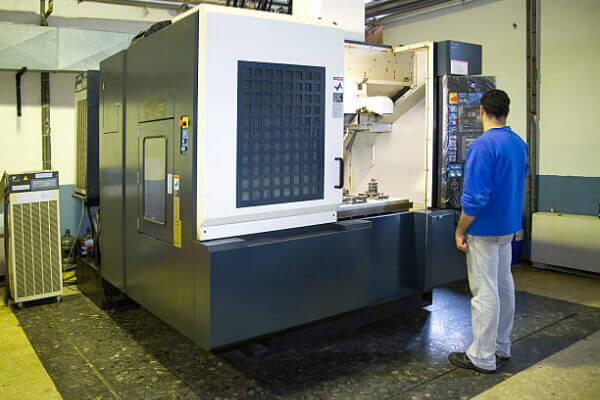
A machine shop is a specialized workshop where various manufacturing processes are carried out to produce parts and components. These shops are equipped with machines and tools that enable the precise cutting, shaping, and forming of materials such as metals, plastics, and composites. Machine shops play a crucial role in industries like automotive, aerospace, medical devices, and construction, as they produce both custom and mass-produced parts essential for different applications.
Machine shops rely on a range of key machines to achieve precision in their operations. Some of the most common machines include:
Lathes
Lathes are versatile machines used for shaping cylindrical objects. They rotate a workpiece while applying various cutting tools to create precise shapes, such as shafts, cylinders, and threads. Lathes are essential for turning, facing, and threading operations.
Mills
Mills are crucial for shaping solid materials using rotary cutters. They come in different types, such as vertical and horizontal mills, and are used for milling, drilling, and boring operations. Mills are ideal for creating complex shapes and surfaces, including slots, holes, and pockets.
Drill Presses
Drill presses are used for creating precise holes in various materials. They provide accuracy in terms of hole depth and alignment, making them indispensable for applications that require repetitive and accurate drilling.
Grinders
Grinders use abrasive wheels to finish surfaces and achieve smoothness and precision. The Grinders sharpen cutting tools, remove excess material, and provide a fine finish to machined parts. Surface and cylindrical grinders are among the most common types.
Beyond the main machines, machine shops utilize a wide array of tools to support operations. This includes cutting tools like end mills and drills, measuring instruments such as calipers and micrometers for precision measurements, and clamping tools like vises to secure workpieces. Each tool plays a role in ensuring that the final product meets design specifications.
Machine shops can vary greatly in terms of their focus and capabilities. Some of the main types include:
Custom Machine Shops
Custom machine shops specialize in creating parts according to specific customer designs. They work on unique projects that require tailor-made solutions and often cater to industries needing low-volume but high-precision parts.
Production Machine Shops
Production machine shops focus on manufacturing large volumes of standardized parts. The Production machine shops often equip automated machinery to maintain efficiency and consistency throughout the production process.
Job Shops
Job shops handle a variety of machining tasks and offer a diverse range of services. They cater to different industries and provide machining services based on the needs of each job, making them ideal for both small and medium-scale projects.
Tool and Die Shops
Tool and die shops create molds, dies, and tooling components used in various manufacturing processes like stamping and injection molding. They play a key role in producing tools that ensure precision in mass-production settings.
Prototype Shops
Prototype shops focus on developing and refining product prototypes before full-scale production. These shops prioritize flexibility and rapid iteration, allowing clients to validate their designs and make adjustments before committing to production runs.
Quality control is a critical aspect of any machine shop operation. Accurate measurements, tolerance checks, and inspections ensure that parts meet the required specifications. Machine shops use advanced inspection tools like coordinate measuring machines (CMMs) to verify the dimensional accuracy of parts. Consistent quality control helps maintain customer satisfaction and compliance with industry standards.
Selecting the right machine shop depends on factors such as the complexity of the project, the required volume, and the shop’s expertise. Consider the shop’s reputation, turnaround time, and the types of materials they can handle. Understanding a machine shop’s strengths and capabilities ensures that the selected shop aligns with the project’s needs and expectations.
For a streamlined experience in sourcing high-quality machined parts, PROTO MFG offers precision machining solutions tailored to your needs. Whether it’s custom components or large-scale production runs, PROTO MFG combines advanced technology with expert craftsmanship to deliver on your project requirements. Trust in PROTO MFG to simplify your sourcing process and bring your designs to life with accuracy and efficiency.